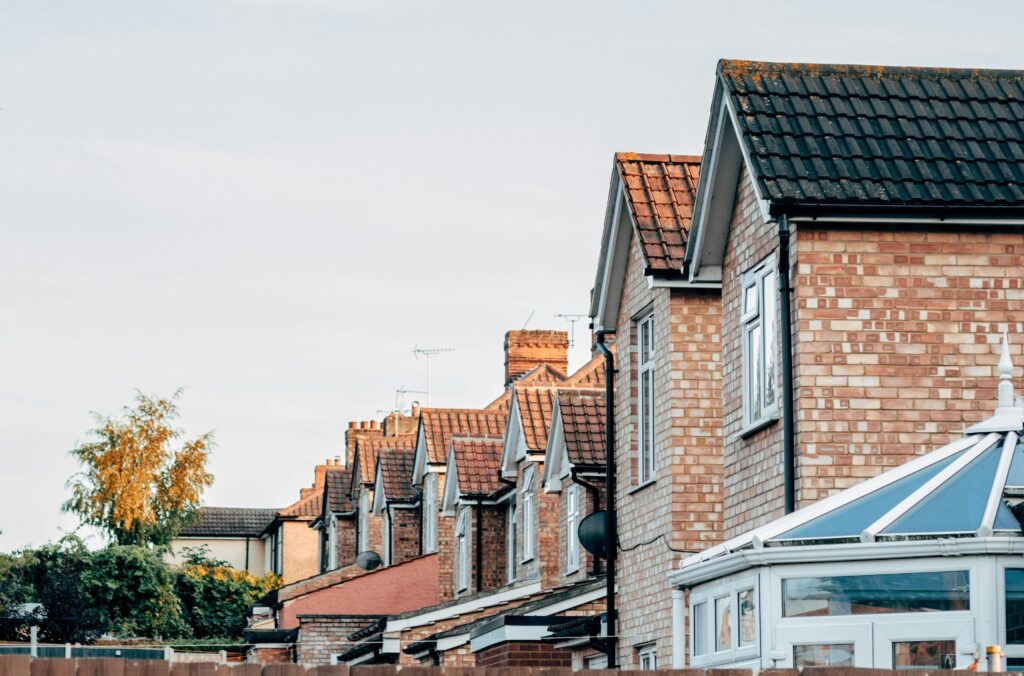Getting planning permission for that dream extension or for essential maintenance can be a nightmare. Planning regulation is complex and many people have fallen into the pitfalls that await the ill-informed. As a starting point, we’ve distilled some key facts about what building projects do and don’t need planning permission …
If you want to build something new or make a major change to your building you will probably need planning permission. If your project needs planning permission and you do the work without getting it, you can be served an enforcement notice ordering you to undo all the changes you have made. So don’t risk it and check before you start.
Benefits of Extending Without Planning Permission
An extension to a residential property may be considered a permitted development, which doesn’t require a planning application to be submitted. The main benefit here is avoiding the twelve-week wait that seeking planning permission takes, meaning you can start your project much sooner. Meanwhile, you’ll also save potentially hundreds of pounds on the application fees.
Have You Checked Whether You Need a Planning Permission?
As mentioned above, you could build your extension without permission if your proposal falls within the permitted development guidelines. But first, there are restrictions to consider:
1. Is Your Property a House?
Be aware that flats and maisonettes do not have permitted development rights, so you won’t be able to build your extension without permission.
2. Is Your Property Listed Or In a Conservation Area?
Or other ‘protected’ areas, including:
- National Parks
- Areas of Outstanding Natural Beauty
- the Norfolk or Suffolk Broads
- a World Heritage Site
If the answer is ‘yes’, you may not be able to take advantage of permitted development rights or they might be restricted. In particular, your permitted development rights might have been removed if there is an ‘Article 4’ direction for your property. Speak to your architect about this, or consult your local council directly.
3. Does Your Extension Comply With Permitted Development Rules?
Certificate of Lawful Development
If you want to be certain that your proposal falls within permitted development guidelines, you can apply for a certificate of lawful development. This may come in useful when you come to sell your property, to show the buyer or buyer’s mortgage lender that your extension without planning permission was legal.
Building Control Approval For An Extension
This one is a big yes; you will need building control approval for your home extension but it doesn’t need to delay your project and can be easy to obtain if you appoint the right professionals.
There are certain standards, set out by the government, that all building projects must follow. There is a set of documents called ‘Approved Documents’ that act as a guide to achieving these standards.
We go into more detail about building control in this article, but basically you have three options on getting approval for your home project:
- A ‘building notice’ is where you/your builder gives notice to the council that works are about to start. This makes things much quicker, but there is more of a risk that you will be asked to change aspects of the design as you go. Also, there is less scope for appealing their decisions. However, this route could be suitable for a simple house extension (especially if you have a good architect on board).
- A ‘full plans’ application to the council means that you submit plans and details for approval before work starts. This information is usually much more detailed than a set of planning drawings. Once submitted, the decision takes a minimum of five weeks. Once work starts on site, regular inspections will be made.
- Using an ‘approved inspector’. An approved inspector is a private individual or organisation employed by you to ensure that your project complies with the building regulations. They will check and inspect the work instead of the local council.
Freeholder Consent For An Extension And Other Permission
You may require other consents before starting your work and you might want to check with your solicitor if you’re not clear on the answer to some of these questions:
Do You Own The Freehold?
If the answer is no, you will need to seek permission from your freeholder.
Can a freeholder refuse permission for an extension?
First of all, you will need to read your lease agreement carefully, and seek clarification from your solicitor if needed. Check that your lease covers the area you wish to extend onto. If you don’t own the land, expect to pay for it! They will probably start with getting a valuation for your property as it stands, calculate the uplift in value the extension will create and ask for a percentage of the profit you would make.
Even if you do own the space, you should expect to pay fees relating to gaining the consent. The freeholder is likely to appoint a solicitor and structural engineer to check that your proposals are structurally sound and you will be liable to cover the cost of these services.
Do The Titles For Your Property Include Restrictions (Restrictive Covenants)?
Even if you do own the freehold to your property, you may be restricted or even prohibited from building an extension due to ‘restrictive covenants’. These are often historical restrictions contained in the titles to the property, where the original developer or council restricted the owner doing certain things. These restrictions are passed down from owner to new owner and can be very archaic!
Prohibiting the alteration or extension to a property is a common one. Even if the council is the enforcer, do not assume that gaining planning permission removes this restriction.
Do You Share a Wall Or Fence With a Neighbour?
Or even if you plan to excavate some ground near a neighbour’s property, you may need to have a Party Wall Award in place before starting work. You are legally obliged to give your neighbour 1-2 months’ notice (depending on what the works involve). If you’re unsure whether the Party Wall etc. Act applies to you, speak to your architect or find a Party Wall surveyor.
What Happens If You Build Without Planning Permission
If a homeowner adds an extension without securing planning permission, they could encounter several issues, such as:
- Local authority enforcement action: This may require the extension to be removed if it does not meet planning guidelines.
- Challenges in selling the property later: The absence of planning permission can deter potential buyers, potentially lowering the property’s market value.
- Possible fines and penalties: Failing to follow planning regulations can lead to financial penalties, increasing the overall expense of the project.
To avoid these risks, it’s wise to consult with the local planning authority to see if planning permission is needed for a particular project. This can help homeowners ensure their extension is both compliant and successful.
Finding The Right Architect
Choosing the right architect for your home project is a critical first step, but can also be a bit of a minefield. This is exactly why I set up this website in the first place!
Time to Book a Call !
Let’s talk about your kitchen extension
Call Now
Would you like to extend your kitchen to gain a bigger space for your family?
You are just in right place because we are the Kitchen Extension Experts!




